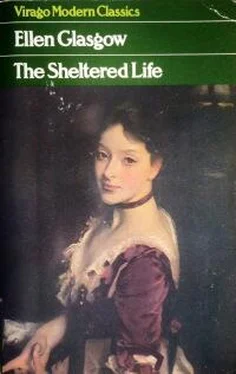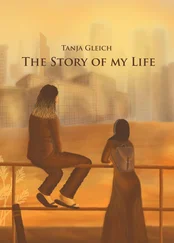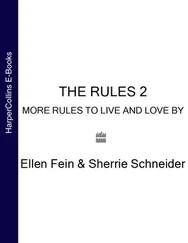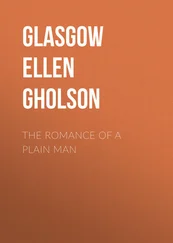Ellen Glasgow - The Sheltered Life
Здесь есть возможность читать онлайн «Ellen Glasgow - The Sheltered Life» весь текст электронной книги совершенно бесплатно (целиком полную версию без сокращений). В некоторых случаях можно слушать аудио, скачать через торрент в формате fb2 и присутствует краткое содержание. Жанр: Классическая проза, на английском языке. Описание произведения, (предисловие) а так же отзывы посетителей доступны на портале библиотеки ЛибКат.
- Название:The Sheltered Life
- Автор:
- Жанр:
- Год:неизвестен
- ISBN:нет данных
- Рейтинг книги:5 / 5. Голосов: 1
-
Избранное:Добавить в избранное
- Отзывы:
-
Ваша оценка:
- 100
- 1
- 2
- 3
- 4
- 5
The Sheltered Life: краткое содержание, описание и аннотация
Предлагаем к чтению аннотацию, описание, краткое содержание или предисловие (зависит от того, что написал сам автор книги «The Sheltered Life»). Если вы не нашли необходимую информацию о книге — напишите в комментариях, мы постараемся отыскать её.
The Sheltered Life — читать онлайн бесплатно полную книгу (весь текст) целиком
Ниже представлен текст книги, разбитый по страницам. Система сохранения места последней прочитанной страницы, позволяет с удобством читать онлайн бесплатно книгу «The Sheltered Life», без необходимости каждый раз заново искать на чём Вы остановились. Поставьте закладку, и сможете в любой момент перейти на страницу, на которой закончили чтение.
Интервал:
Закладка:
"Are you feeling better to-day, Father?" Mrs. Archbald was descending the steps of the porch to the square of sunlight between the border of scarlet sage and the boughs of the sycamore. In the centre of the square, the old man was sitting, with William stretched at his feet. As he looked up at her, his fine old head reminded her of a picture she had seen somewhere (it must have been in Europe, since she never looked at pictures in America) of Saint John—or it may have been Saint Joseph. Older, much older (she had a bad head for such matters), but there was the same contour, the same quality.
"Will you come down a minute, Cora, if you have time." He lifted his right hand, once so smooth and hard, but as withered now, he thought in disgust, as the paw of a monkey.
"Haven't I always time for you, Father?" When she smiled, the corners of her eyes puckered and her thin lips appeared to sink deeper. Yet her indomitable will to believe the best had never been broken.
"I know, my dear, and I appreciate it. I only wanted to ask you if you had heard from Eva since this morning."
Drawing out her handkerchief from an embroidered bag, Mrs. Archbald pressed it to her lips as if she were making up her expression. "I was just talking to John," she replied. "He did not sound encouraging, but, then, John always takes too dark a view. That doesn't seem right in a physician. I wonder why he ever decided to study medicine."
"He is honest, anyway, and he has the rare gift of moral indignation. The longer I live, the more I realize that we lack moral indignation. Not moral hysteria, which springs from cruelty, but sober indignation."
"Yes, but there are different kinds of honesty, don't you think?" Mrs. Archbald inquired in a conversational tone. "I suppose, too, moral indignation is all right in its place, but I can never understand why everybody who makes life unpleasant is regarded as a public benefactor. That doesn't mean, of course, that I am easy about Eva. Something is wrong, I know. George told me yesterday that twice in the last ten days she had got up before breakfast and dressed herself and wandered off somewhere. He didn't know where. When she came back, she couldn't remember where she had been. He seems dreadfully discouraged, and that isn't usual with George. I couldn't just make out what he is afraid of. Men are so vague," she ended, with a sigh disguised in a cough, "but he has shown more character than I ever gave him credit for."
"He means well. Most people mean well. I hope Jenny Blair is a comfort to her. She is a sympathetic little soul."
"Sympathetic? I used to think so, but recently I've begun to wonder. I have a feeling, only a feeling, nothing more, that the child is keeping something back from me. She goes about with that moonstruck air young girls have when they fall in love. I asked her if she had taken a fancy to anybody—it might well have been that good-looking Agnew boy at the White—but she positively denies it. There isn't any one else, except Fred Harrison, I can think of at the moment. I really believe she is telling the truth when she says she dislikes John. But I sometimes think," she added, letting anxiety break through, "that I know nothing about Jenny Blair."
"Every parent feels that at times, my dear daughter. She is at the empty age now. Be patient with her while the springs of character begin to fill. Perhaps Eva knows her better than we do. She seems to find her companionable, and Jenny Blair shows that she is devoted. Hasn't she been spending every night over there?"
"Only when George is away. He has been down at Fairmont for several days, shooting ducks, and Eva doesn't like to be alone when John is called out in the evening. That reminds me," Mrs. Archbald bit her lip and appeared to calculate hurriedly, "that I shan't need to order any meat for the rest of the week. George is coming home this afternoon, and he will be sure to send us more ducks than we can possibly use."
"Will Jenny Blair be there to-night?"
"Not unless George stays away. She is going to take Eva some of my currant jelly; but she won't spend the night again. Shall I tell her to stop and speak to you? She is really very unselfish about it, and she insists that she is willing to give up her whole winter if she can help Eva get well. Still, I am opposed to the child's sacrificing her youth. When you give up a year of youth, it seems impossible ever to make up for it again."
"You're right, I think," the old man assented. "Let Jenny Blair have all her happiness."
After she had gone he dozed for a few minutes, and when he opened his eyes again the mood of earth and sky had softened into the mellow harmony of late afternoon. So still were the gauzy shadows and the faint sunshine that the drift of autumn seemed to be less a stir in the air than a part of the tranquil spinning of earth. Over the whole garden there was the powdery haze of November, so motionless that it might have been painted, yet as perishable as the bloom on a grape. Even the pale yellow leaves of the sycamore fell slowly, without turning, without rustle, as if they also were created by an illusion. Beyond the white boughs of the tree the deep blue sky was streaked with transparent green, and far above the solitary steeple of a church a thin trail of smoke hung suspended.
The autumn was passing, and more than the autumn was passing with this slow rhythm of evanescence. He was not aware that his era, the age of glory, was dying. All he knew was that he had been young and was now old, that when he had defeated every other antagonist, there remained time, the unconquerable. Yet he was too old to dread time. For it was time that had given him, sitting here in the warm sunshine, the happy end of his life.
But the age was drifting, he knew; the world was flattening around him; the heroic mould had been broken. Beauty, like passion, would decline to the level of mediocrity. With the lost sense of glory, the power of personality would change and decay. It was possible, it was even probable, he thought, that the individual would return to the tribe from which it had so lately emerged. Better so, perhaps. Who could tell? Who could tell anything? Of one thing alone he was sure,--life would never again melt and mingle into the radiance that was Eva Birdsong. "Personality," he thought, being old and sentimental, "could reach no higher." Beyond that triumph there was no other triumph. To go onward, civilization must fold back, must recoil from individualism and seek some fairer design. Though he did not suspect that his era was dying, he felt that both he and his age were drifting, not aimlessly like dust, but somewhere to an end. Somewhere? He was not greatly concerned. Whatever came, he could meet it; he could even endure not to meet it. Having lived his little hour of mortality, he had ceased to fear any form, he had ceased to fear any formlessness, of the Absolute.
For the calm of being old was strangely like happiness. While he dozed there, dreaming of Eva Birdsong, clinging, with the tenacity of age, to his last illusion, he was visited by a sense of fulfilment. The mind could play queer tricks, he thought, looking down at William, asleep on the grass. For there were moments when an image came to him, not of one woman alone, but of two women blended, when he could no longer separate the memory of the past from the sentiment of the present. In that fleeting hour before frost, before death, he felt that a presence was near him in the faint sunshine, motionless among the scattered powdery bloom of the autumn. A shape was there, less a shadow than a changeless outline of light, falling between the scarlet sage and the boughs of the sycamore. Was it the thought of a woman or of all women? Was it the poet who might have been and was still, perhaps, somewhere? Not that it mattered. Whatever it was, that vague outline brought happiness; it brought serenity of mood; it brought the courage of dying; it brought, even, acceptance of life. "After all," he found himself repeating aloud, "character may survive failure. Fortitude may be the last thing to go."
Читать дальшеИнтервал:
Закладка:
Похожие книги на «The Sheltered Life»
Представляем Вашему вниманию похожие книги на «The Sheltered Life» списком для выбора. Мы отобрали схожую по названию и смыслу литературу в надежде предоставить читателям больше вариантов отыскать новые, интересные, ещё непрочитанные произведения.
Обсуждение, отзывы о книге «The Sheltered Life» и просто собственные мнения читателей. Оставьте ваши комментарии, напишите, что Вы думаете о произведении, его смысле или главных героях. Укажите что конкретно понравилось, а что нет, и почему Вы так считаете.












